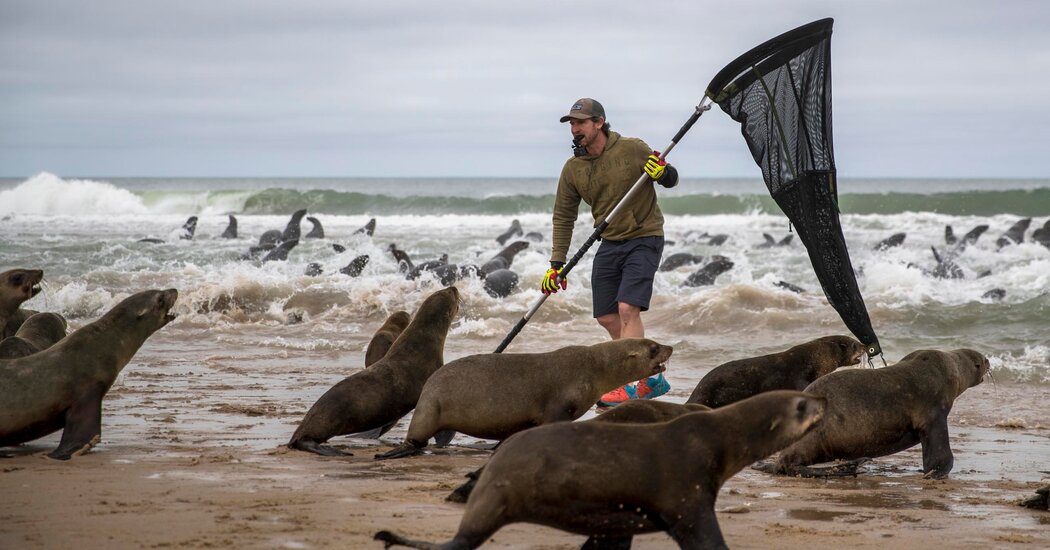
Ocean Conservation Namibia is disentangling a record number of seals, while broadcasting the perils of marine debris in a largely feel good way.
A group of men sprints across a windswept beach, holding what look like outsize butterfly nets, and close in on a colony of seals trying to escape into the sea.
The pursuers wrestle with their quarry: Seals entangled by fishing gear and other maritime garbage, whose fortunes are about to be reversed. As one man pins down a panicked animal, another cuts away the plastic deeply embedded in its neck. The chase ends with a freed seal triumphantly returning to the ocean.
Ocean Conservation Namibia, a nonprofit group based on the central coast of Namibia, estimates it has rescued around 3,000 seals entangled in marine garbage since 2020. Videos of its rescues posted online became a sensation during the pandemic, suggesting that the group has threaded a tricky needle: calling attention to the growing crisis of marine trash but with a feel-good ending for the affected animals.
“Without a doubt, the numbers that they get there are so much greater than anywhere else in the world,” said Jeff Harris, a research ecologist with the National Oceanic and Atmospheric Administration’s National Marine Mammal Laboratory. Mr. Harris disentangles pinnipeds himself, and said that in his best year he freed 100 California sea lions, tops. “They’re doing that in a month,” he said. “It’s really incredible.”
Ocean Conservation Namibia was founded by Katja and Naude Dreyer, a married couple who were running a kayaking company when, about a dozen years ago, Mr. Dreyer began disentangling some of the estimated million Cape fur seals that live along the country’s coast.
